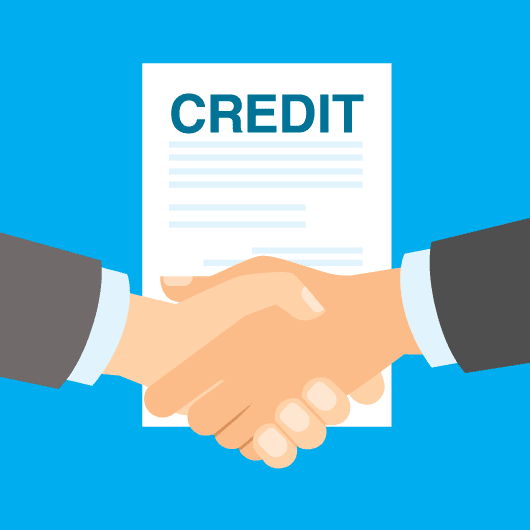New Credit on a Debt Management Plan
If you’ve been on a debt management plan for a while and feel that you’ve been successful managing your monthly spending while paying down debt, good for you. It’s a great to feel that your finances are in control.
That status may have you wondering about getting new credit, and you may question whether a new account will hurt your credit rating, or if opening a new credit card might even help your credit. Is it even possible to get new credit while in debt management?
Before going there, consider that none of these is the first question you should be asking.
Should I Open New Credit on a Debt Management Program?
That’s the most important question. For the most part, the answer is no.
It is possible to get credit while on a DMP, and there may be circumstances in which it’s advisable. But if you’re on such a plan because you were having trouble making your payments on time, adding more debt while you’re still in the process of eliminating your old debt is asking for trouble. Your current creditors will notice you are building more debt and could require you to close the new account or even void the lower interest rates and reduced monthly payments that makes your DMP so beneficial.
Will I Be Approved for New Credit While I’m on a Debt Management Plan?
Getting a loan or mortgage while on a DMP is possible, though not always advisable. The longer you are successfully paying down your debt, the better the chance your credit score improves and with it, terms for a new loan or mortgage.
However, if you’re trying to buy a house, you’ll need a down payment. If you’ve got thousands of dollars necessary for a down payment, you’d be well advised use it for paying off your debts first. Becoming debt-free will make you a more attractive borrower.
Those determined to buy a home while on a debt management program may need to use mortgage lenders like Quicken and LoanDepot, which offer more flexible terms than banks. Another alternative is owner financing, which involves making mortgage payments directly to the seller, who might be willing to do this if the property has been hard to sell.
Getting a car loan may be necessary, especially if you need transportation to get to work. The interest rates will be higher because of your credit history. You need to be realistic. Don’t buy the car of your dreams. Buy one you can afford, such as a low-mileage used car. Don’t get a loan longer than four years. Even though the monthly payments will be lower, the car ultimately will cost more the longer you pay. Banks and credit unions usually offer better loan deals than dealerships. If your current vehicle is in good working condition, it’s probably better to keep it and wait to get another car.
Debt management plans won’t stop you from getting a government-backed student loan because they don’t use credit reports to determine who qualifies. Private lenders, however, do.
Before seeking any of these loans while on a DMP, talk with your credit counselor.
Alternatives to Credit Cards
Legendary college basketball coach Bob Knight said “Every successful endeavor starts with a plan.” When it comes to managing your money, that plan is spelled b-u-d-g-e-t.
Planning how you spend and save what you earn is the best way to ensure a sound future, which starts by keeping debt from taking over. A good budget estimates how much money you will earn in the coming months, allocates enough to cover vital expenditures and sets money aside for savings. What’s left over can go to enjoyable pursuits.
Creating a budget allows you to achieve a goal, such as buying a house or car, paying off debt or saving for retirement or your children’s education. Based on how much money you take home after taxes, put monthly income on one side of a sheet of paper and expenses on the other. If the expenses are larger than income, prioritize. Housing, food, utilities, transportation, medicine and insurance are necessities, but it’s may be possible to economize. Eating out, cable, gym memberships and entertainment may have to be scaled back. How much? You won’t know until you put it down on paper or into a budgeting software. InCharge’s online budget calculator can help you identify your expenses and determine what income is required to maintain your expenses. InCharge also offers lots of budgeting apps and software that can help you plan your cash flow more efficiently.
Consider a Debt Management Program
Perhaps you aren’t on a debt management plan but you realize your credit card debt has taken control of your finances. Take a self-assessment.
- How many credit card accounts do you have?
- Are some of them high-interest accounts?
- Can you consolidate them into a single, low-interest loan that saves you money and simplifies your life?
- Do you have a budget?
- Do you have money saved for an emergency?
A DMP can be a great tool to help you by consolidating payments into a single monthly statement, lowering your interest rates, stopping harassing calls from debt collectors and become debt-free in three to five years.
If you need more information on what steps you should take, consider credit counseling. InCharge counselors get help you get started.
Sources:
- N.A. (ND) Can I Use a Credit Card While on a DMP? Retrieved from https://www.moneymanagement.org/debt-management/faq/can-i-use-a-credit-card-while-on-a-dmp
- Bucci, S. (2011, February 28) New loans doable with debt management plan. Retrieved from https://www.bankrate.com/loans/personal-loans/new-loans-doable-with-debt-management-plan/
- N.A. (ND) What Does Credit Counseling and a DMP Do to My Credit Score? Retrieved from https://consumerrecoverynetwork.com/question/what-will-a-credit-counseling-dmp-reflect-on-my-credit-score-if-i-were-a-co-signer-on-wife-auto-loan-any-recommended-companies-i-could-turn-to-for-help/

